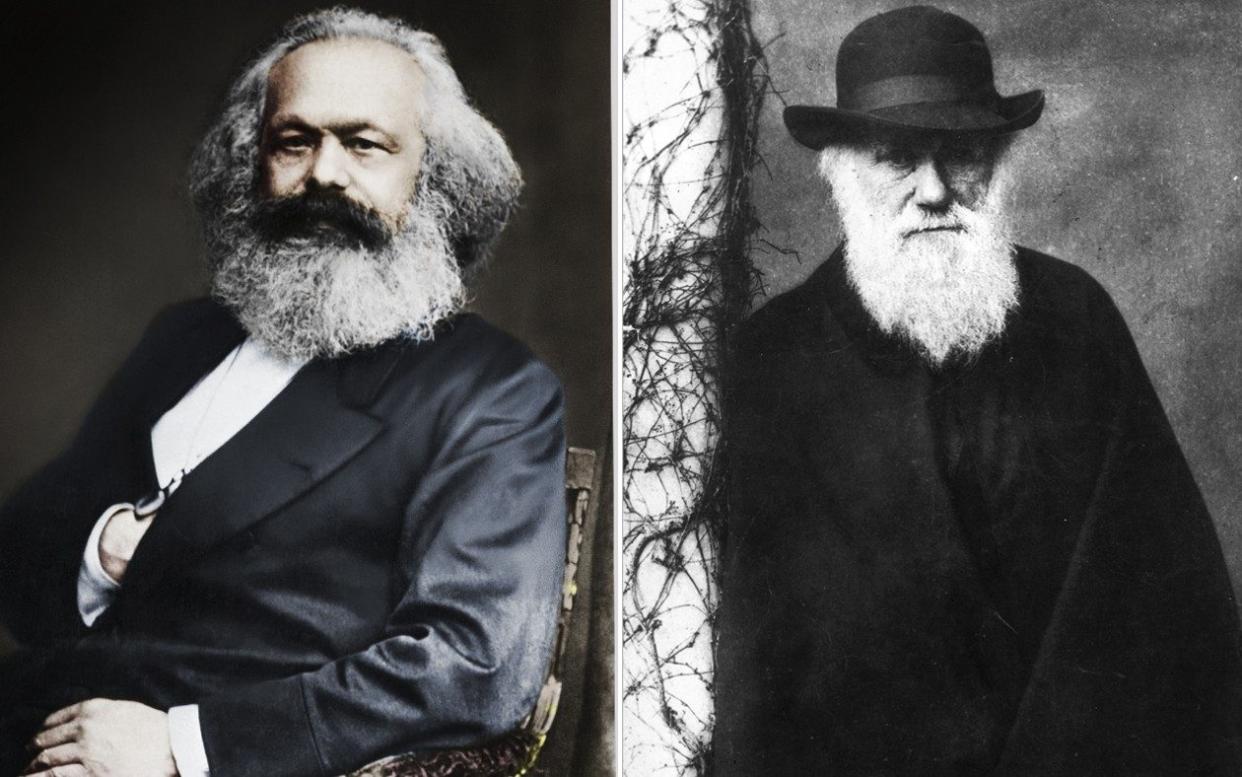Charles Darwin’s unread copy of Das Kapital sent to him by Karl Marx to go on display

Karl Marx gifted Charles Darwin a copy of Das Kapital – but the naturalist gave up on reading it part way through, it has emerged.
The father of Marxism personally inscribed the controversial book and sent it to Darwin in June 1873, describing himself as a “sincere admirer” of his scientific work.
However, it appears the book did not meet a great reception as most of the pages had not been cut.
In the Victorian era, paper pages in books were bound together at the top to prevent them from falling out if the spine was damaged and needed to be cut to read them.
This 150-year-old copy of Das Kapital, which sets out Marx’s theory that the exploitation of labour is the driving force of capitalism, is now going on display at Down House in Kent, Darwin’s former home.
It is the first time the copy has gone on public display in more than five years following conservation work by Cambridge University Library, which owns it, to repair the book’s spine and small tears on the cover.
It was not previously known beyond a small circle of curators and academics that Darwin had not read the full book.
Darwin did not reply to Marx until three months after receiving the book, with a dry note of thanks in October 1873 that was devoid of the evolutionary biologist’s customary warm tone.
The note, which is also now going on display at Down House, read: “Dear Sir: I thank you for the honour which you have done me by sending me your great work on Capital; and I heartily wish that I was more worthy to receive it, by understanding more of the deep and important subject of political Economy.
“Though our studies have been so different, I believe that we both earnestly desire the extension of Knowledge, and that this is in the long run sure to add to the happiness of Mankind. I remain, Dear Sir, Yours faithfully, Charles Darwin.”
‘Amusing insight’
Dr Tessa Kilgarriff, a curator at English Heritage, which is putting the loaned book on public display, said: “Charles Darwin and Karl Marx are recognised as two of the greatest minds of the late 19th century.
“It is evident from his personal gift and subsequent work that Marx was a follower of Darwin’s theories; however, the uncut pages – and lack of customary pencil marks – suggest Darwin was less enamoured with Marx’s writing – or quite possibly that his German simply wasn’t up to scratch.”
She said it was “an amusing insight into the dynamics between these two prominent intellectuals” and “a fantastic piece of social history, highlighting how Darwin’s theories filtered through Victorian society”.
One explanation for the largely unread Das Kapital could be that Darwin was not interested enough to follow its German prose, as he is known to have struggled reading the language even for the scientific papers he liked.
His son Francis Darwin has previously said he “was often struck at seeing, from the pencil marks made each day where he left off, how little he could read at a time”.
In contrast, there were no annotations on Das Kapital, which suggests he did not attempt to read much of it.
“He was especially indignant with Germans, because he was convinced that they could write simply if they chose,” Darwin’s son said.
“He himself learnt German simply by hammering away with a dictionary; he would say that his only way was to read a sentence a great many times over, and at last the meaning occurred to him.”
The English Heritage exhibition at Down House will explore much of Darwin’s life, including how his family used trays as sledges to slide down staircases.

